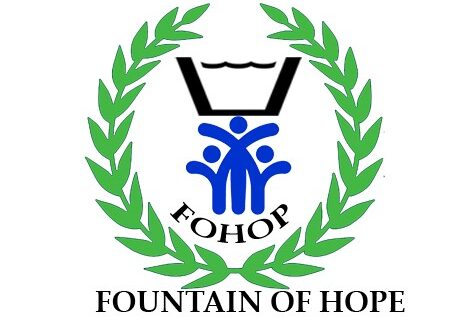About Our Organization
Helping each other can make world better
Fountain of Hope is a local Malawian non governmental, non racial and non profit making organization whose purpose is to bring sustainable hope to the rural areas of Malawi through empowering the community members in becoming own different types of problems and challenges solvers faced in their respective communities.
The idea of forming an organization started in 2011 by a young man after observing the challenges faced by the small scale farmers in the rural communities of Malawi specifically in Group Village Head Mwangwera, of Karonga district. By then he was working in a food security and nutrition project which was uplifting the lives of small scale farmers and was holding key leadership position in one of the International organizations. Then he started helping individual farmers with modern farming technology skills because the area had no access to extensions services offered by the government. After doing it for two years, he shared the success to one of his work mate and suggested for establishing an organisation so that could help more small scale farmers in his area.
Ironically, both of them were already working with small scale farmers but their concern was that when they had visited other areas which were not part of their project , they would note a high demand of services similar to the work they were doing in others areas. They all tried to discuss with their institutions if they could reach the identified areas, but it was not successful due to resources and the targeted impact areas of those institutions. Then, the way forward was to start voluntary work in training small scale farmers in modern farming technology which were environmentally friendly as well as agri-business. The community response was very positive, and the members became more and more motivated.
The first action as a task force, was in Mweningolongo village, of Group village head Mwangwera, Traditional Authority Kilupula in Karonga district, Northern region of Malawi. Along the way, other community needs were identified, apart from food insecurity and malnutrition, there were also poor water, sanitation and hygiene, lack of women empowerment, Lack of child protection where girls were forced into marriages, lack of HIV/AIDS interventions, Climate change adaptation and mitigation activities, lack of capacity of community structures in leadership and managerial skills for good governance, poor girls’ education, lack of enterprise development and access to markets, lack of improved health services, lack of relief aid just to mention a few.
There was no any other organisation working in this area. The group summarized it all that their focus should be on securing livelihood because all other challenges would be automatically incorporated within. In this case, Livelihood was defined as a means of getting the necessities of life. Here it was interpreted that if the person had a way or source of acquiring what was needed in his or her basic life, then would be able to solve the problems faced in the household. Hence the vision was born right away; ‘A society with secured livelihood and able to withstand shocks arising from different factors including climate change’.The situation forced the group to start contributing resources from their earnings for support of the work and became registered by the government of Malawi in March 2014, before registering with Council for Non Governmental Organisation ( CONGOMA) in 2015 and later with Non Governmental Organisation Board (NGO Board). The name Fountain of Hope came into existence after listening to comments from 5 beneficiaries consecutively who would say ‘ we never had hope that we could get such type of services in this area, its our first time and we think we are dreaming’. Then the name Fountain of Hope was born meaning that the organisation is a source of hope to the neglected rural communities.
Therefore, FOHOP’s focus encourages local people to identify their problems and needs and helps them to create their own solutions. By working in a participatory way, with community consultation at all stages of program design and implementation, ensure that projects are effective and sustainable and implement activities which promote the social development of local communities and the improved management of environment and natural resources.
Join FOHOP to give education for children
Helping each other can make local lives better
VISION
MISSION STATEMENT
OBJECTIVES


